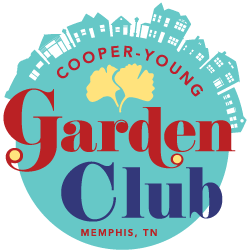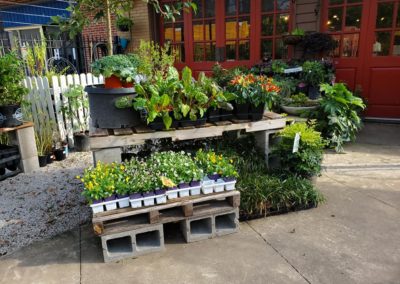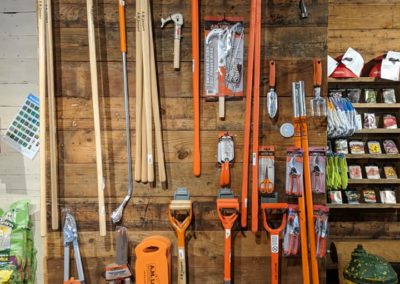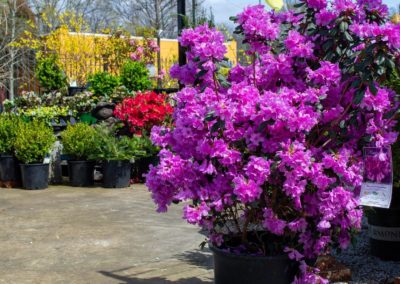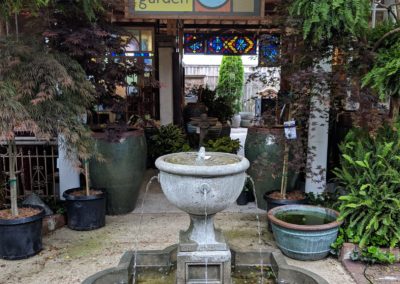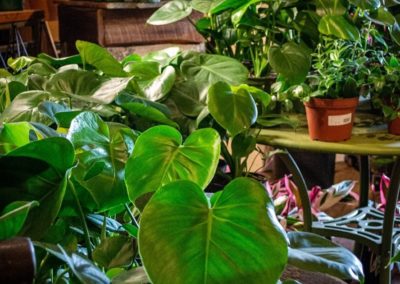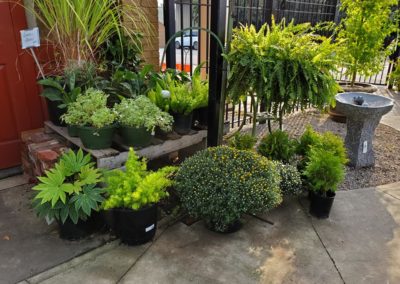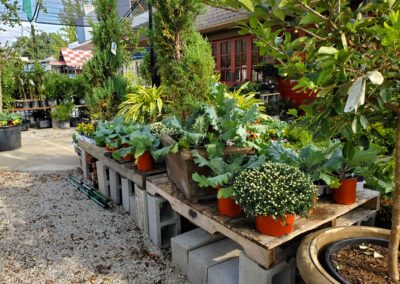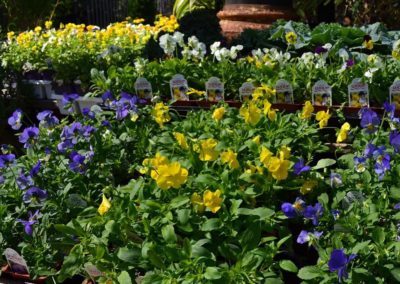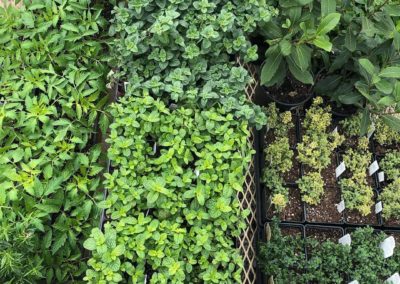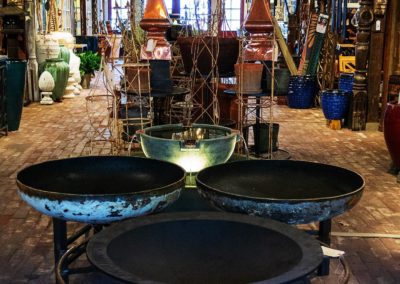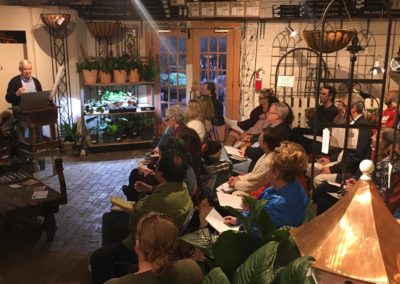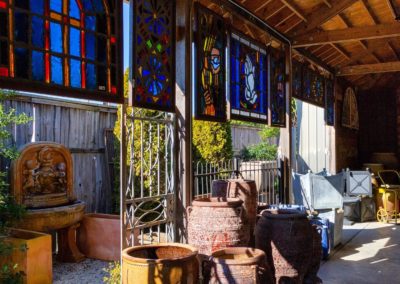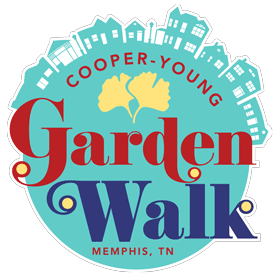
Palladio Garden
Palladio Garden
Memphis’s best selection of fountains, fountain supplies and service, water gardens, planters, urns, statuary, reclaimed architectual antiques, salvage lumber and building materials, doors, windows, gates, outdoor furniture, vintage hardware, underwater lighting, and much more.
- Business owner: Mindy + Frank Roberts
- Address: 2231 Central Avenue, Memphis, TN 38104
- General Manager: Robert Bell
- Contact: (901) 276-3806
- Facebook: https://www.facebook.com/PalladioGarden/
- Website: https://palladiogarden.com
- Extensive selection of Indoor and outdoor plants, shrubs, trees
- Horticulture Tools and Supplies
- Custom Design services
- Pottery and Fountains
- Installation and Maintenance
- Lighting, art, and accessories
- Containers, Planters, and Urns
- Bricks, stones, pavers
- Monthly Garden Talks
Garden Interview with John Jennings
How would you address the challenge of designing for our small, urban gardens?
That’s a great question, and one I’m most passionate about. I love smaller yards and gardens, because everything you do in a small garden has a bigger impact.
That being said, I don’t think design principles for a smaller yard are any different than for a larger yard. Good landscape design, right plant for right spot, good drainage, ideal ratios, 4 season interest, respect for pollinators, some kind of water feature and some kind of rock or stone feature, etc, all taking into consideration the lifestyle of the property owner, is the same for large yards and small yards. But, what is different I think, is that small yards and gardens are less forgiving. Just as a well chosen garden element will have greater impact in a smaller yard, a poorly conceived or executed element is more noticeable.
What is the starting point for creating a functional and beautiful design?
The first step I advise anyone to take is identify which direction the home faces. Secondly, identify the trees on the property and the size.(email me photos, if you need help). Measure the circumference of the trees and radii of their canopies. Look online at the Shelby County Register’s website to find out the dimensions of your lot. Measure the foot print of your home and relative distance from the home and boundary lines of big elements like trees, pergolas, statuary and boulders. Measure the dimensions of patios or other structures on the property. Go online and make sure you understand the various terms describing light conditions, like full sun, part sun, dappled sunlight, morning sun, afternoon sun, etc. Understanding those terms, which come across deceivingly as simple, will allow you to more intelligently talk to a designer, and will allow you to make better plant choices.
NEVER, NEVER, NEVER approach a design for your yard or garden by looking through gardening magazines or browsing in nurseries to decide what plants you like (that comes later). Your property is an important partner in this design and it doesn’t care what plants you like. Thinking about what plants you like first will prejudice you against really good plant choices that might be perfect for your yard and the way you intend to use it.
Which brings us to our next step. Write down your lifestyle and the kinds of activities you would like to do in your yard. If you like to entertain, a place for outdoor dining or socializing is crucial. If you like to meditate, a spot for that is important. Knowing your property and knowing yourself are for more important than knowing what plants you like.
Taking the time to do this will dramatically improve the final outcome and only you can do that.
What do you consider to be the most frequent mistake made by urban gardeners?
Failing to call 811…before you start digging.
After that, not paying enough attention to the soil before planting. Urban landscapes tend to have more construction and litter debris and compaction. Stick your shovel in the ground, pull out a pile of dirt, and take a look at what you have. Spending money testing it is probably not necessary, but having a good visual is important. And, if you need help analyzing it, photograph it and bring it to me. Do that in several parts of your yard. If you are incorporating edibles, consider raised beds. There are advantages to planting in the ground and advantages to raised beds. Research the pros and cons.
What plants do you think are overused in our area? Under used?
I think that crepe myrtles are massively overused. But, with good reason. They solve a lot of design problems and they are tough, drought tolerant with deep root systems.
I would say though that columnar European hornbeams, of which there are a few varieties that do well in our climate, are underused.
Columnar hornbeams make for a nice deciduous alternative to arborvitae. They tolerate pruning and shaping better than other deciduous trees so they are sometimes used to form intricate shapes. They do well as corner foundation anchors, allees, tall hedges, and street trees.
What are the advantages of hiring a professional designer?
There are a lot of advantages. They tailor a design to your lifestyle and think of everything, drainage, soil consistency, plant choices, etc. and, if they do the install also, handle all of the logistics and labor. The main thing to understand, whether you are doing it yourself or hiring a professional, good design and install work takes time, and it’s difficult to predict how much time.
Do you have a specific, inexpensive tip that would help our neighbors create a “wow factor” or dial their gardens up a notch?
Before you buy the first plant, look at your design and plant list, and write down what will be the most exciting elements of your yard in each season. If you hit a season with nothing that you can imagine excites you, fix that problem.
If you have a small garden and think you can’t fit a water feature with plants and fish in it or can’t afford it, reconsider. Good in ground ornamental koi and gold fish ponds can cost thousands. But, I can show you how to do a beautiful above ground feature in an affordable range that will exponentially improve your outdoor space.
Urban gardeners are often busy people. What is your best advice for high-impact/low-maintenance gardening?
Right plant, right place. Steer clear of hybrid tea roses if you aren’t retired or with a lot of time on your hands. If you have an irrigation system, great, but if you don’t, learn to water. Using best planting techniques and watering correctly, rather than frequently, will help your plants a lot, and reduce the time spent maintaining them.
Also, when you a see a weed, get it out. If you are compulsive about getting weeds out as soon as you see them, over time, you will be able to spend less time weeding. Weeds that are perennials spread. Others drop seeds. End the cycle.
Whats the way way to reach you with questions?’
Email jjohn.jennings@palladiomemphis.com
.
